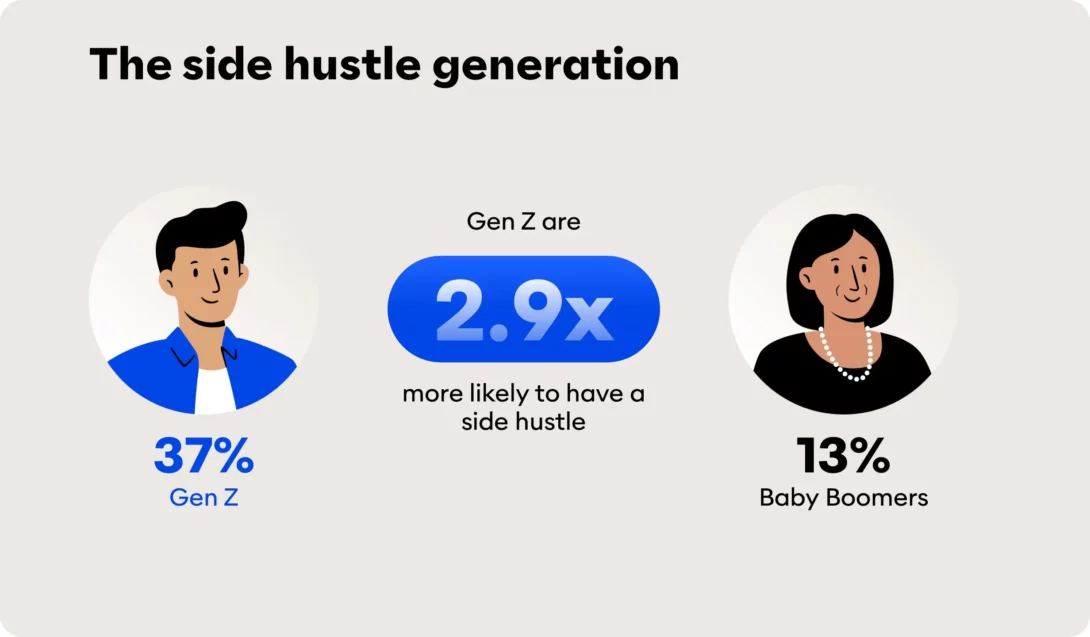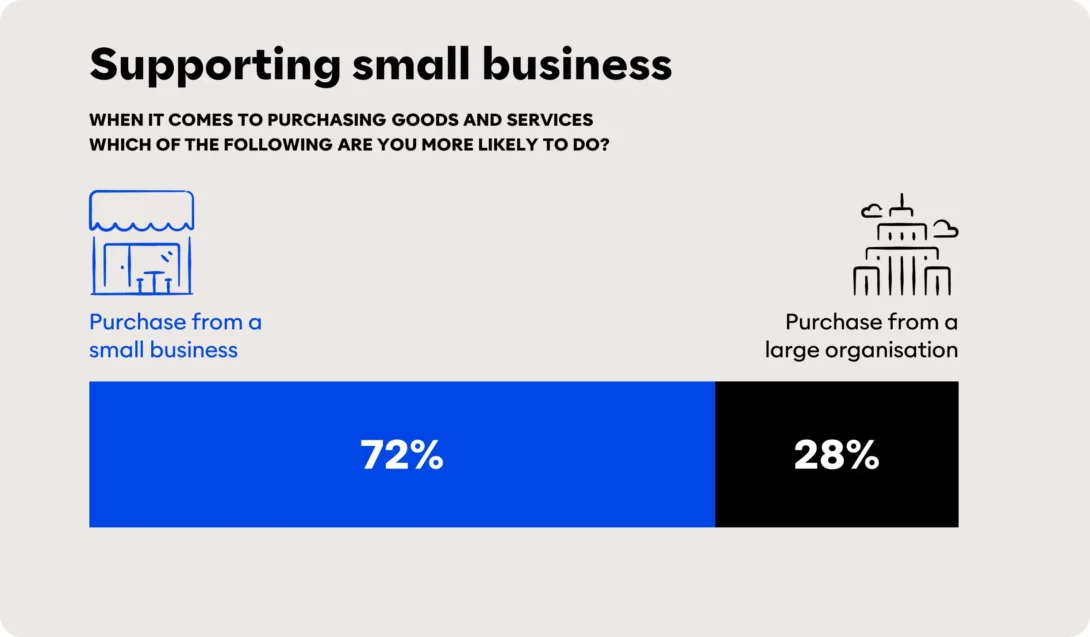
Key takeaways
Almost nine in ten business (88%) employ four people or fewer.
The entrepreneurial spirit is strong amongst young Aussies, with 86% of Gen Z wanting to work in something they started themselves, to combat cost of living pressures.
Almost three in four (72%) are more likely to purchase goods and services from small businesses compared to large corporations (28%).
Australia has always been an entrepreneurial nation, with small businesses as the backbone of the economy and the labour force.
The Australian spirit of independence, a DIY attitude and the courage to give things a go are strongly demonstrated in the data. With lower trust in large corporations, and a rising generation with entrepreneurial ambition, Australia’s small business landscape is on the rise again but is challenged by regulatory burden and globalisation.
In Australia, almost nine in ten businesses (88%) employ four people or fewer.
Among the emerging generations, the entrepreneurial spirit is strong, with 86% of Gen Z wanting to work in something they started themselves.
When asked why, Gen Z pursued a side hustle to combat the cost of living, achieve financial goals, or to develop a temporary income system.
The side hustle generation
Among the emerging generations, the entrepreneurial spirit is strong, with 86% of Gen Z wanting to work in something they started themselves.
The gig economy has enabled them to develop additional income streams with the rise of things like Uber, Depop, and other e-commerce tools.
When asked why, Gen Z pursued a side hustle to combat the cost of living, achieve financial goals, or to develop a temporary income system.
While the data highlights the entrepreneurial dream of many Australians, there are some real challenges with 49% of businesses failing in their first 4 years.
While there are challenges, Australians are more likely to choose small businesses over large corporations for their purchases.
Almost three in four (72%) are more likely to purchase goods and services from small businesses compared to large corporations (28%).
The Top 5 Survival Challenges
1. Red tape – One of the difficulties for small businesses is the time and cost requirements related to compliance, legislation and regulations.
What’s more, it is on the rise and negatively impacting on small businesses.
Two in five business owners and managers (41%) say red tape and compliance costs have an extreme or significant impact on their business performance.
2. Access to finance – The Royal Commission’s recommendations for the big four banks will result in the tighter lending criteria. As we know, cash is king so small businesses may struggle as a result of these tougher requirements.
Increasing expenses, both general operating costs and wages are also a challenge for small businesses.
3. Digital presence – Businesses must have a digital presence. Especially for Gen Y (1980 – 1994) and Gen Z (1995 – 2009), if businesses are not online, they don’t exist, as much of their world is online.
Having a website that is easy to navigate, up to date and well presented along with a social media platform is vital for reaching and connecting with potential customers.
4. Local infrastructure – One of the top demands of small business is local infrastructure provision (strong public transport links, availability of public parking, connections to uncongested roads and high-speed internet).
Business owners list infrastructure investment which responds to the changing needs of a local area as a key factor in their survival.
5. Staff – Attract and retain top talent by understanding what the younger generations look for in the work life. Gen Y and Gen Z have different priorities and are attracted by more than just the pay.
Some of the most desired attributes of a workplace are bosses that provide are:
- flexible working hours
- a sense of purpose
- opportunities for growth
- competitive wages
- collaborative leadership style
- variety of work
- realistic workloads.
Leaders and policy makers today will do well to understand the entrepreneurial spirit of many Australians, especially among the emerging generations, while being aware of the challenges that dampen this spirit.

















